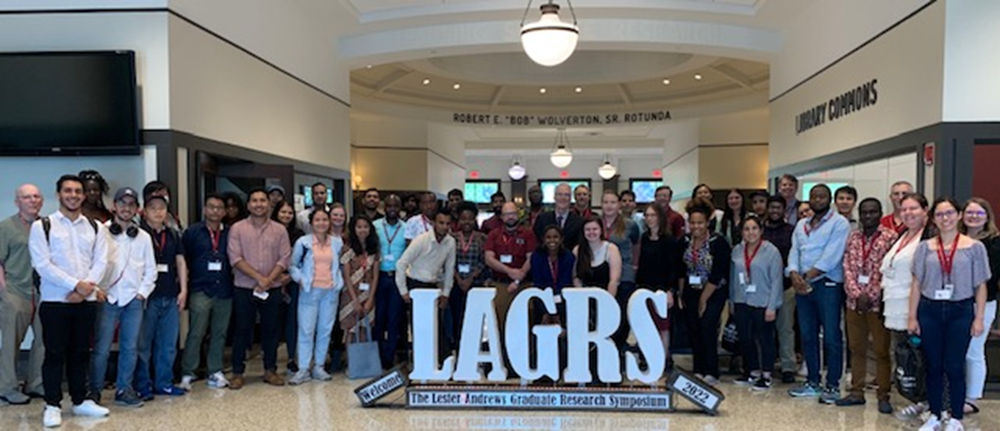March 28, 2025
The Research Symposium invites all subdisciplines in chemistry to present their research in oral and poster presentations. These subdisciplines include, but are not limited to: Analytic, Biochemistry, Organic, Inorganic, Physical, Computational and Chemical Engineering.
The technical sessions will be separated into Basic and Applied Chemistry sections. During registration, choose the technical session that seems to best apply to your research. The LAGRS team will inform applicants if their research is best suited for a diifferent session, and will suggest changes.
Call for Abstracts is Closed.
Basic Chemistry
As the name suggests, basic chemistry studies the basic underlying principles of chemistry, in all the subdivisions. The main interest is the “Why?” and “How?” of chemistry. Applications of chemical systems are welcome, but must not be the focus or main point of the research.
Synthesis
This section will be focused on synthesis of organic, inorganic, organometallic compounds and complexes. The main focus of the research presented responds to the questions: “How can this compound be synthesized? What are the challenges, and how were they overcome?”
Thermodynamics and Kinetics
This section will be focused on the study, measurement and calculation of thermodynamic and kinetic parameters to understand the behavior of chemical systems. These studies can be followed by use of analytic chemistry, computational chemistry, physical chemistry, enzymatic chemistry or alike. The main focus of the research presented responds to the questions: “Which parameters can we measure to characterize our chemical system? Are they thermodynamic parameters or kinetic parameters? What methods are used?”
Fundamental Chemistry
This section will be focused on basic chemistry that does not belong in the previous two categories. The main focus of the research presented responds to the questions: “Why does this system behave this way? What are the underlying chemical principles that explain the behavior?”
Applied Chemistry
As the name suggests, applied chemistry studies the applications of chemical systems in a larger focus, in all the subdivisions. Research in this area is usually a form of several subdivisons of chemistry combined to solve a larger research question. Aspects of basic chemistry are welcome, but must not be the focus or main point of the research. Research that includes “potential applications in the future” or “potential uses” is not suitable for this area. This section is reserved for the present pursuit of an application of chemistry, not a “potential application”.
Materials Chemistry
This section will be focused on the application of materials such as polymers, ceramics, composites, metallic systems, or alike. Examples of these applications are the creation of photoluminescent devices, capture of gases or chemicals, and synthesis of sensors and solar panels.
Catalytic Systems
This section will be focused on the application of organic, inorganic or organometallic compounds in catalysis. The types of catalysis may include small-molecule activation or synthesis of organic compounds. The catalysts may be organocatalysts, well-defined organometallic or organic compounds, and heterogeneous materials. Electrochemical or photochemical systems are also accepted in this section.
Advances in Applied Chemistry
This section will be focused on applied chemistry that does not belong in the previous two categories.

